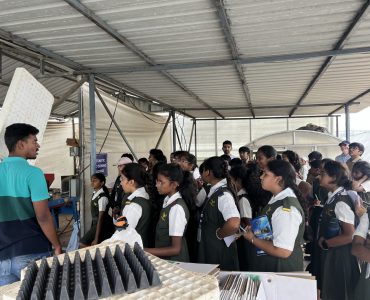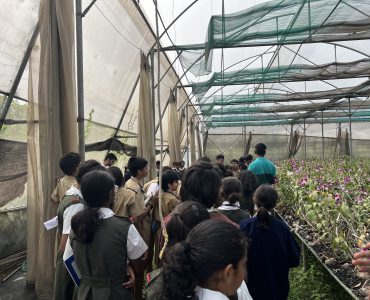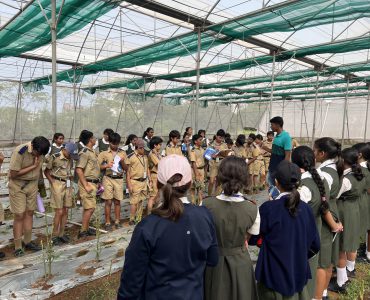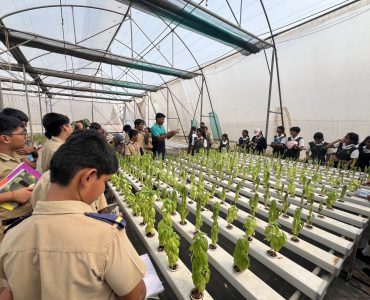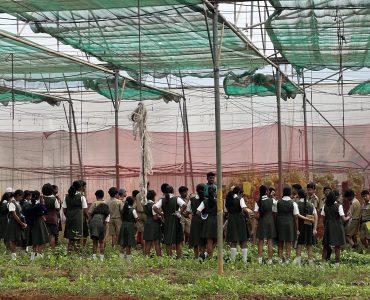Grade 7 Field Trip
Field trips are a vital component of educational learning, offering students an opportunity to connect theoretical classroom knowledge with real-world experiences. These outings encourage curiosity, active engagement, and critical thinking, as students get a hands-on perspective on subjects they have studied. Field trips also foster teamwork and collaboration, allowing students to learn in a different environment that stimulates their senses and broadens their understanding of the world.
On 02 nd November 2004, Grade 7 Cambridge students embarked on an enriching field trip to the Centre of Excellence for Vegetables and Flowers, located in Balanagar. This trip was designed to immerse students in the world of horticulture and sustainable farming. The Centre of Excellence is renowned for its innovative agricultural practices, making it an ideal destination for students to explore modern farming techniques and their application in addressing global food security challenges. The day’s agenda included guided tours of various sections of the Centre, each focusing on a different farming method or technology aimed at enhancing agricultural efficiency. Students not only observed but also engaged in interactive activities that brought these technologies to life.
Takeaways of the field trip were numerous and impactful, with students learning firsthand about advancements in farming. Highlights included greenhouse technology, automated seed sowing, and high-tech poly houses for optimizing crop growth. They also explored eco-friendly structures like naturally ventilated poly houses and hybrid poly houses, along with soil-free methods like hydroponics and aeroponics that conserve resources. Students were introduced to vertical farming for urban spaces and learned about natural fertilizers through vermiwash, gaining a comprehensive view of sustainable agricultural practices.
The field trip to the Centre of Excellence for Vegetables and Flowers was a transformative experience for the Grade 7 students. It provided them with a deeper understanding of how traditional and modern agricultural practices can work together to meet global food demands sustainably. From hydroponics and aeroponics to the use of automation and eco-friendly technologies, students were introduced to solutions that not only increase efficiency but also promote environmental stewardship. This hands-on experience encouraged students to
appreciate the complexity of food production and the potential for future advancements to address global challenges.


